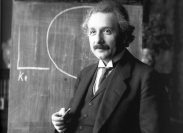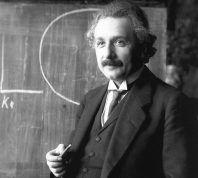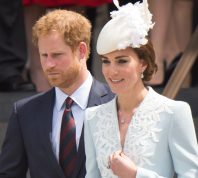Musician Plays Saxophone During His 9-Hour Brain Surgery
The patient underwent an “awake surgery."
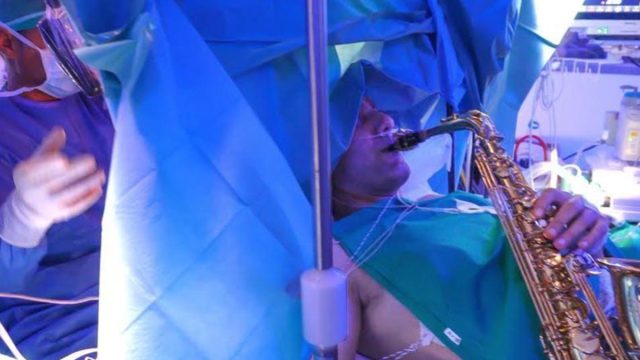
A musician undergoing surgery to remove a brain tumor stayed awake during the procedure—and played the saxophone during his nine-hour operation. The procedure happened last week in Rome, and the patient was discharged from the hospital in just three days. Read on to find out why doctors asked the man to play during his surgery, and what happened when he did.
Doctors at Rome's Paideia International Hospital operated on the 35-year-old man, identified only as GZ, to remove a brain tumor. The patient underwent an "awake surgery," which brain surgeons use to ensure their work isn't harming the brain. "Each brain is unique, as is each person," said neurosurgeon Dr. Christian Brogna, who led the procedure. "Awake surgery makes it possible to map with extreme precision during surgery the neuronal networks that underlie the various brain functions such as playing, speaking, moving, remembering, counting."
"Very Complex" Nine-Hour Surgery A Success
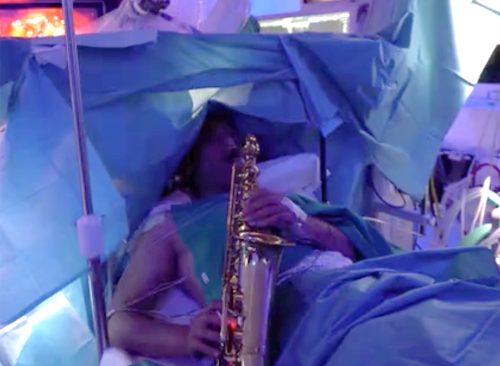
The man underwent the nine-hour surgery last Monday and was released from the hospital on Thursday. Brogna told CBS News the tumor was removed successfully and the patient was not negatively impacted. "The tumor was located in a very, very complex area of the brain," said Brogna. "Moreover, the patient is left-handed. This makes things more complicated because the neural pathways of the brain are much more complicated."
Allowing GZ to play the saxophone during surgery enabled this successful outcome, Brogna said. It allowed the 10-person surgical team to monitor the brain functions he used to play. During the procedure, GZ played tunes including the Italian national anthem and the theme from the 1970 movie Love Story. "To play an instrument means that you can understand music, which is a high cognitive function. It means you can interact with the instrument, you can coordinate both hands, you can exercise memory, you can count — because music is mathematics — you can test vision because the patient has to see the instrument, and you can test the way the patient interacts with the rest of the team," he said.
"Operating On the Sense Of Self"
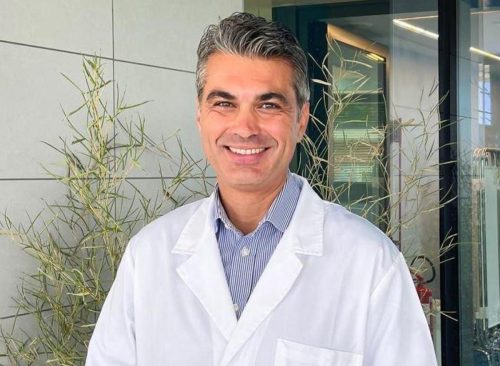
"Awake surgery" is a well-established procedure. Brogna has performed hundreds, and he told CBS the key to a successful outcome was knowing the patient very well. "When we operate on the brain, we are operating on the sense of self, so we need to make sure that we do not damage the patient as a person — their personality, the way they feel emotions, the way they get through life," said Brogna. "The patient will tell you what is important in his life and it is your job to protect his wishes."
Additionally, this particular operation was aided by state-of-the-art technology, including a tracer that helped differentiate cancer cells from surrounding healthy tissue. "Every awake surgery not only allows to obtain the maximum result in terms of removal of the pathology, but it is a real discovery," said Brogna. "Each time it offers us a window into the functioning of this fascinating, but still in many ways mysterious organ, which is the brain."



